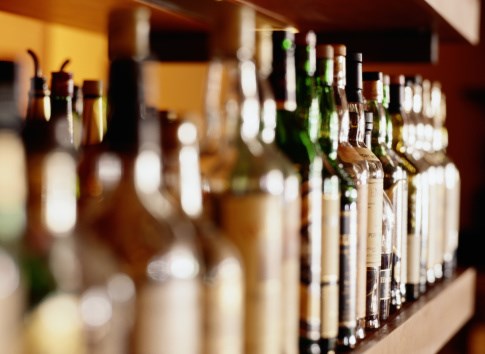The latest move on the liquor-policy front conjures up images of tykes sitting in neighbourhood pubs with sippy cups in their little hands, eagerly awaiting a splash of the amber nectar.
“Hey you kids! Be careful around the dart board.”
Together with dozens of other changes, it’s the biggest relaxation of booze laws since the end of separate beer parlour entrances for “ladies and escorts” in 1963.
It’s clear the B.C. Liberals think the suite of liquor-policy reforms they have in mind are winners. Because they’ve been announcing and re-announcing them for weeks as part of its review of alcohol policy. And it’s Premier Christy Clark who is pouring them out.
Tuesday’s moves will see minors allowed in pubs and legions, not to drink, of course, but to be with their families, up to a certain hour in the evening.
The government pictures a relaxed family-friendly atmosphere at events like anniversaries or birthday parties. Parents will be able to take their kids for dinner at a pub or enjoy music at a legion that chooses to be family-friendly. Having children at the table, allowed in many places around the world, could moderate drinking. To guard against negative developments, a beefed-up server-education program will accompany the change.
“Families should be able to dine together in their neighbourhood pub,” Clark said.
B.C. will also become the last place in Canada to allow “happy hour,” a cut-rate price for drinks for a set period in late afternoon and early evening.
The government will set a minimum price and specify the times. It amounts to a big win for a group called Campaign for Culture, which has been lobbying for happy hour.
Elin Tayyar, the group’s executive director, said it could become a cultural phenomenon, where people take a break and socialize creatively during what are now off-peak hours. “It will be an opportunity to take advantage of,” he said.
Also ending is the irritant created by the need to order food at some establishments in order to get a drink. Simplified licensing rules will mean that if patrons don’t want to eat, they will not be required to do so in food-primary places. And customers will be permitted to move freely with their drinks from one licensed area, such as a bar, to another, such as the eating area.
Those changes, which will likely take effect in the spring, were preceded by several earlier announcements. Farmers markets and secondary tasting rooms will be allowed to sell craft products. Cutting of red tape for local manufacturers was promised, and a quality assurance program for craft breweries and distilleries is in the works.
The big crowd-pleaser as far as the government is concerned is allowing the sale of booze in grocery stores. Liberal MLA John Yap, who conducted the review, announced he was considering it earlier this fall. Then he announced he was recommending it. Then Clark announced the government is considering it.
Still to come is the announcement that the government will actually proceed with the idea.
The changes to date have prompted some squabbling among the factions of the liquor world. But overall they amount to a huge boon to an industry that’s a financial backer of the B.C. Liberals.
The review generated a huge response and there’s a camp of police departments, health officials and academics who are leery of relaxing liquor laws.
But it’s clear they’re losing the argument.
About 20 changes have been announced before Yap’s review is even released. There are about 50 more to come.



